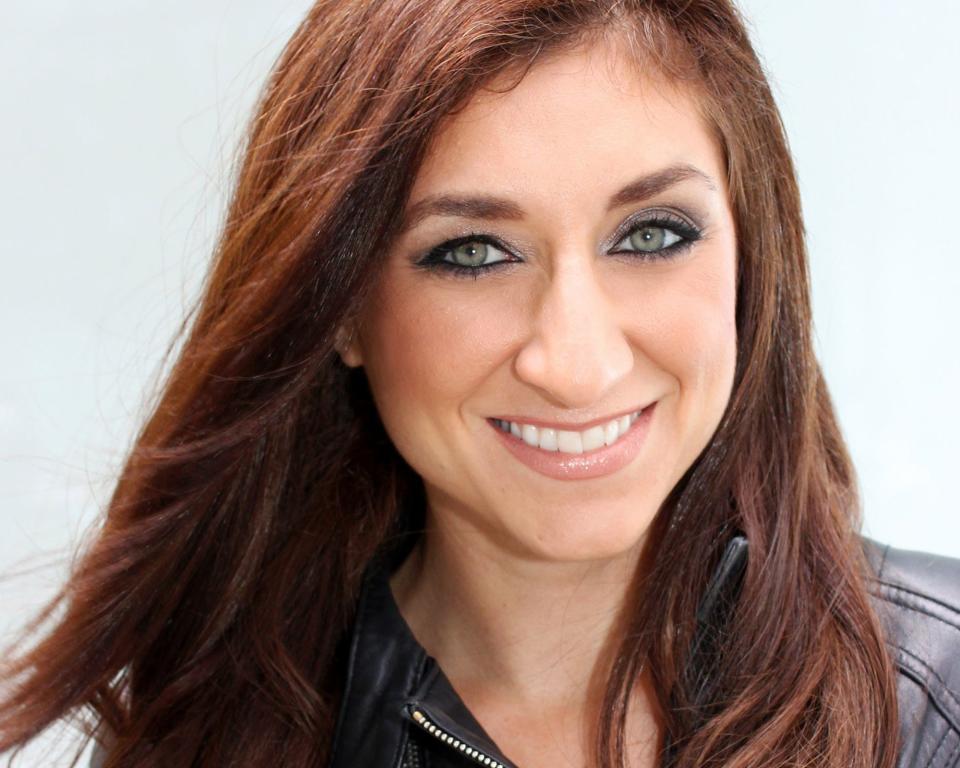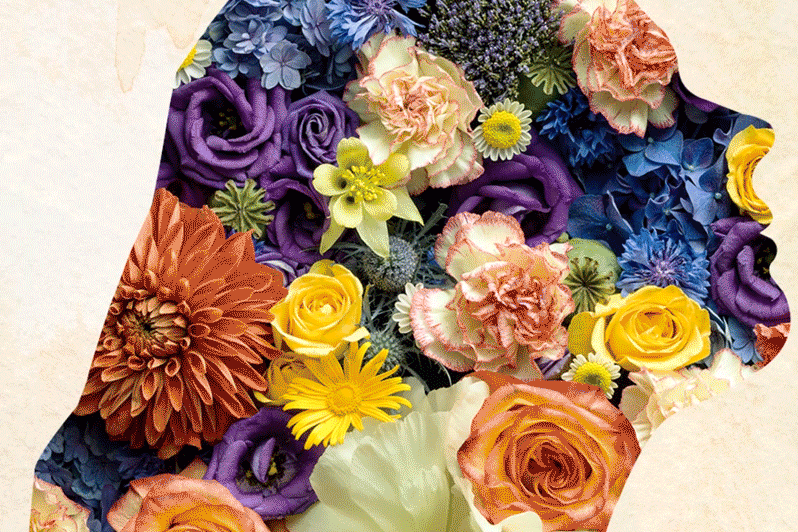Why I Hate Being Called an "Exotic Beauty"
By Beth Shapouri. Photos: Emily Kemp, Courtesy of Beth Shapouri.
Let me just state that I am not the lone woman in the world born without an ego. Tell me that I have hair that dreams are made of, and I’ll place you (briefly) on my list of top five favorite people. That said, I would like to make a case for you to strike an adjective—one you probably think is a compliment—from your vocabulary when describing women. That word? Exotic.
It makes me cringe anytime someone uses it to describe my admittedly unusual combination of light eyes, dark hair, fair-ish complexion, and Middle Eastern features—born from my Iranian, Irish, and German background. But I know that the emotion is really tied to that first country on my list. Anyone who asks me about my heritage blandly nods when I mention the other two, with a visible aha moment crossing their faces when I hit “Iranian.” And forgive me for being a little touchy about it right now, but with the all focus on marginalizing people from certain countries (looking at you, immigration ban), I’m speaking up.
Look, if you’ve used it in the past to describe someone—even me—don’t panic. I know it’s coming from a place that doesn’t mean harm. But intention and impact can be quite different, so let me explain.
The first part that gets to me is that "exotic" is really an adjective better suited for things like plants or birds, not people. It makes me feel like an object, like a half-Persian carpet rather than a half-Persian girl.
Once I get past that, I move on to thinking, Why can’t I just be pretty like other women? Why do I have to be put in a special category? I’m certainly not the first to feel like this. Tayna Rawal, Ph.D., adjunct professor of gender studies and philosophy at California State University, Los Angeles, put it to me this way recently: “‘Safe’ beautiful women—the standard Hollywood actress, for instance—have many labels: classic, timeless, elegant, and so on. Any woman whose physicality is beyond these borders can lead people to reach for more, shall we say, colorful language.”
Colorful indeed. And in this case, the term people are choosing has a dark, sexual connotation I didn’t ask for. Exotic has a sultriness that suggests I’m somehow a seductress inviting attention even when I'm running into Rite Aid to get toilet paper (the scene of my last cat call). You might be using it to mean “I find you strikingly beautiful” but what I hear is “Who let you out of your harem?” And trust me, I certainly don’t need people pointing out to me that I don’t fit in. I got that message loud and clear growing up in a sea of bleached blonds in Kentucky in the 1990s.
That leads me to the larger issue here: This is a microaggression, plain and simple. It's a subtle, often unintentional comment that demeans someone who's part of a minority or marginalized group. So while remarks like “I love your whole look, with the hair and the eyes—it’s so exotic” (an actual thing that has been said to me by a real human male) might seem nice on the surface, at their core, they’re not. Susan Torres-Harding, Ph.D., assistant psychology professor at Roosevelt University in Chicago, explained it in a way that captures why it hits me so hard.
“They send a message that there's something different about you. You’re not normal. You’re a curiosity,” she says. And even when they’re well-received, that doesn’t necessarily let anybody off the hook. “Some have argued that even if a microaggression doesn’t bother a person in the short term or in the moment, just having to experience it or deal with the situation is a type of stress,” she says. And you know what the world is all full-on? Stress. So let’s stop with this, shall we?
I get that this is all quite hard to navigate—it can be tricky to know what’s OK to say in every scenario. And maybe you think I’m just another sensitive snowflake and this really isn’t such a big deal. But here’s the thing: The words we choose matter. And for minority groups that are feeling not-so-welcome in our very complicated cultural landscape right now, I would argue that it’s crucial to our sense of unity that everyone try harder to stop even small acts of racial marginalizing.
So anytime you want to give someone a compliment and you’re not entirely sure that it doesn’t qualify as a microaggression, here’s my suggestion: Take a moment to think about the idea or feature you’re choosing to highlight, and do that fortune cookie thing—but instead of thinking “in bed” at the tail end, say to yourself “and I would still say that if you had traditionally European features.” If you can agree with that statement in full, proceed. If not, abort the mission.
And let’s just stop using "exotic" for people altogether, shall we? Because while I may be ethnically ambiguous, the only exotic thing in the room with me right now is an orchid plant. And maybe I’m projecting, but I’m pretty sure it would rather you not call it exotic either.
This story originally appeared on Glamour.
More from Glamour:
What's That Salad the Kardashians Are Always Eating on Their Show?
A Look at the Emmy It Girls of the Past 20 Years: Taraji P. Henson, Tina Fey, and More
Major Skin Mistakes You're Making in Your 20s, 30s, and 40s


